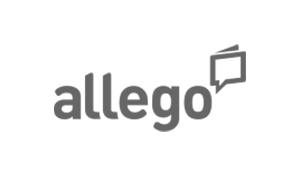The aesthetics, organization, and clarity of your website are all vital components of a successful marketing strategy. You probably know that neglecting any one of these can result in visitors quickly leaving your site and a low rating from Google. But what if you’ve got a fantastic looking, beautifully organized website, and the traffic just isn’t coming in?
The good news is that you already have a great foundation to build upon. Now, it’s time to examine how customers search or view your advertisements (and who views them), how they arrive at your site, and what they do once they get there.
1: Ad placements
Clicks are always good, right? Not quite. In some clients’ Google Ads accounts, we’ve seen hundreds or even thousands of clicks coming from a display ad campaign without a single conversion. The reason is often where the ad is displayed: for instance, Google sometimes places them in apps and Youtube videos without much consideration for the genre. Mobile phone games in particular utilize popup ads that are easy to click accidentally, resulting in small charges each time that add up to many potential wasted advertising dollars.
Make sure the Youtube channels where your ads are showing up are at least somewhat relevant to your business as well. Huge numbers of Youtube users are children or from outside the US; make sure you’re not spending money on impressions and clicks from people who will never buy from you!
2: Sponsored search terms
There are a number of pitfalls in managing sponsored search terms, and your strategy must be as idiosyncratic as your business. For example, do you want to sponsor your business’s name as a keyword? It could be useful if your company is not showing up for that keyword, but you could also be paying for many clicks from people who simply didn’t want to take the time to type “.com” into their browser!
Figuring out which keywords to sponsor, which to exclude, and how much to pay is a tricky business, because it requires you to think like someone searching for the service you provide. They might use a general term that’s much more expensive to buy clicks for, or they may type a very specific item which has a cheaper click cost but you may not think to sponsor. To choose where to spend your money, you need to look at keywords that are popular in your field and will also bring the right type of prospect. Luckily, there are tools to help with some of the keyword research, but most of them cost a hefty fee.
3: On-site behavior
What if users are landing on your beautiful new site, but still not converting? It could be that they’re mistaken clicks, but it’s also possible that there’s something wrong under the hood.
In 2018, Google found that 70% of websites took more than 7 seconds to fully load all visual content. That’s a lifetime in a world where conversions drop 12% for every second of page load time. Monitoring your website’s benchmarks, as well as maintaining good, keyword-driven page titles and meta descriptions, will pay off in the form of higher quality traffic and longer session times.
Learning how to troubleshoot and solve these issues can be a hugely useful skill, and we recommend that all of our clients gain at least some familiarity with Google Ads, but if it’s too much for you to handle on your own, get in touch for a free consult and we’ll see what we can do to help!





